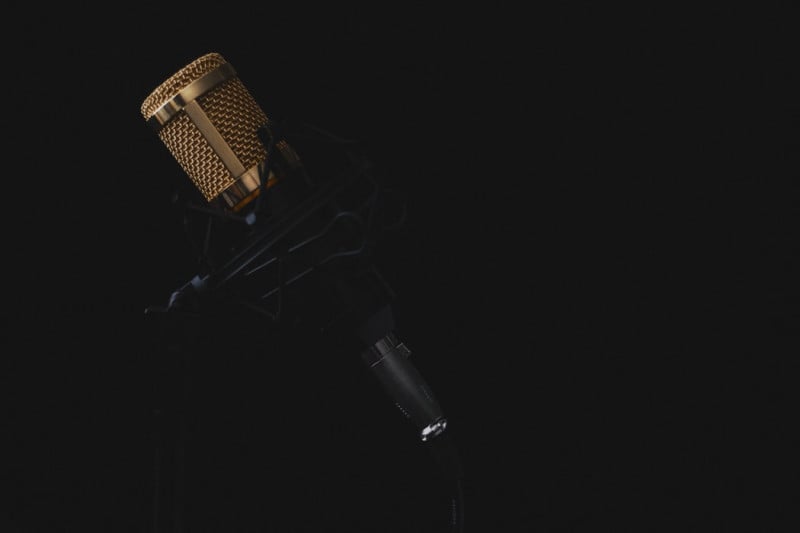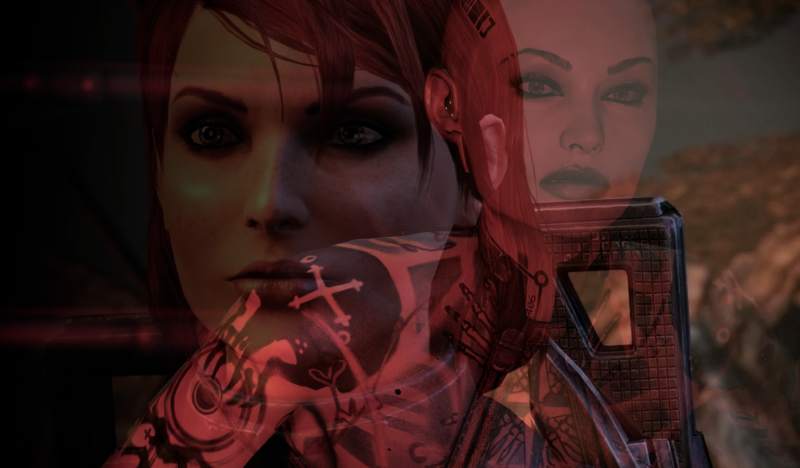With the Mass Effect Legendary Edition out now, so many seasoned fans are jumping back to board the Normandy once more to revisit familiar planets and say hello to old friends. More than that, however, newcomers to this beloved franchise are diving in for the first time, experiencing a new adventure, one that has touched so many lives throughout the years. With so many characters that have come to feel like family so many, what about the voices behind those friendly faces? We sat down with Jennifer Hale, who plays Commander Jane Shepard (among other roles) in the franchise, and Courtenay Taylor, who famously brought Jack to life, to learn a little more about the process behind the creation. We already knew it wasn't easy, but some of what we learned is good insight that applies to many aspects of life.
When going a little deeper into the voice acting side of games, Taylor mentioned that it's still hard not to be self-critical, no matter the years of experience under her belt. "It's hard, honestly. I've tried to give this up the further into my career I get, but it's really hard for me not to be self-critical," she tells Game Informer. "I am trying to be more gentle with myself, but there is no way for you to do this job where you get so little information from the start, and then to be able to know the whole story and see who is who and everything like that and to not go back and be like 'ah, you know what, I think I have should have done this instead.' It's just the level of information we are working with, it's generally very small."
She adds, "So how you come out the other side? It's not like watching a movie where you're like, 'Oh, I know what the script was.' [Voice acting] is sort of all over the place, and it's really hard to focus when it's you."
Hale jumped in, saying, "Yeah! I think that's one for the things that people may not realize. It's that this job, you know, game acting 85% of the time is what we call cold reading, you don't get the script ahead of the time [like movie actors do]. And even when you get the script, it's an Excel spreadsheet with just your lines, it doesn't have the context, it doesn't have what just happened; there are all these questions before you say each line, which is obviously, you know, 'who am I? What do I want? Who am I talking to? What just happened? What's going on between me and them? What's the arc of our story together? Where are we? Did I just meet them or did they just try to kill me?' There are all of these branching storylines that we just don't know. It's insane. Now we walk in, there it is on the monitor."
She laughed, adding, "God bless the voice directors. We can ask them, sometimes, what just happened? They'll say this and that and then we just do it. Sometimes we'll do it a couple of times. Maybe if we're really fancy, six or seven times, maybe eight. Usually between two to four, though. And then it goes off to the market and it's out of our hands."
 Hrayr Movsisyan
Hrayr MovsisyanTaylor adds, "You do have a voice director, and there are some amazing ones out there. I think Jen [Hale] would agree with me how important it is to have someone that can synthesize this process because these 'game bibles' are huge. They're massive, and even if you could read them, as an actor, you would never be able to remember. This is like a movie that you are walking through and meeting 100 different people and having relationships. So to have a voice director who can not only synthesize the writers in the room, the actual material that's coming down the pipeline that can be written as we're just going along. And then wrangling actors who, you know, can be crazy and sensitive, and to be able to put all of that together and make it better? It's awesome."
Hale also adds that Mass Effect was a great example of how a phenomenal voice director can make or break an experience. One thing the trilogy is hailed for (Hale'd, if you will) is it's organic and natural-feeling and sounding dialogue. The angry moments are so angry. The vulnerable moments are so vulnerable. The fight-to-survive moments? Unbeatable. A lot of that is the talent, absolutely, but bringing it all together is very much on the voice directors, as well. According to Hale, the voice directors for Mass Effect were able to "synthesize" flawlessly, she was even allowed to voice alongside Mark Meer, the actor behind Commander John Shepard, to make sure that the experience between the two gender options felt in harmony, versus like two completely different games.
What was interesting to me when chatting with these two incredible women was just how much Taylor related to Jack as a character. I've mentioned before in an earlier Yakuza feature about what it was like to grow up homeless and always on the cusp of dangerous situations, and that's something that has made me, as a fan, relate to Jack. She was abused, tormented, used. She fought for her right to survive, and that hardened her in a lot of ways. While Taylor had her own battles, her own hardships and punk-rock nature helped her bring Jack to life in a way that I don't think anyone else could have.
When I asked Taylor, after learning about how little information voice actors sometimes get, how she made Jack her own, she mentioned that she did already have her backstory, and that helped. That being said, she immediately connected to her when she received the script. After seeing Jack's visuals and how she looked when she was introduced in Mass Effect 2, Taylor mentioned that got her the most excited. When she first saw Jack in all of her shaved-head glory, a connection was made.
 Game Informer
Game Informer"I was so excited," says tells Game Informer. "Because actually, I did shave my head back in high school. The school I went to was very strict, so when I dyed my hair pink, they removed me until I had my natural hair color back. So I just shaved my head. They were not happy about that, but I was like, 'hey, man, this came out it's natural to shave.' I also had a mohawk in high school, stuff like that. It made me feel like this was kind of kismet. You know, the magic of voice acting isn't actually magic, it's a lot of hard work, it's taking a lot of classes, it's being in touch with your emotions, it's all the things that make up a bigger picture."
She continued, saying, "For me personally, the connection with Jack was that I had gone through - obviously not anything like [the character] did - but I did have a hard time in school. I had funny hair colors. Back then, people didn't have those hair colors. They didn't do that. People would walk up to you and yank your head back and mock you and say weird things like 'where'd you park your spaceship, weirdo.' But I was a total punk rocker. I went to shows back when not a lot of people did that. I had a lot of anger and a lot of emotions that I wasn't really in charge of. A lot of displaced anger. And so the amazing writing and to be able to really get in touch with my emotions, for better or worse, helped [with Jack]. In the context of Jack, what she had gone through, and that feeling that you're not worthy of being loved, you know, not being the best. The best defense is offense, you know. Basically, punch now and ask questions later, that feeling was familiar to me. Because of that, I felt like I had this deep connection because I understand how hard it can be when you have no way to channel or harness the rage of things, of what happened to you."
To be able to come out of the other side, knowing that you are greater than the sum of your parts ... Jack's story was just an excellently crafted storyline.
To read more about Taylor's thoughts on Jack, including how she feels that her character didn't see her full potential, you can check out our previous interview right here. Oh, and how Hale wants FemShep to have her time to shine with Tali as a romance option.
No comments:
Post a Comment